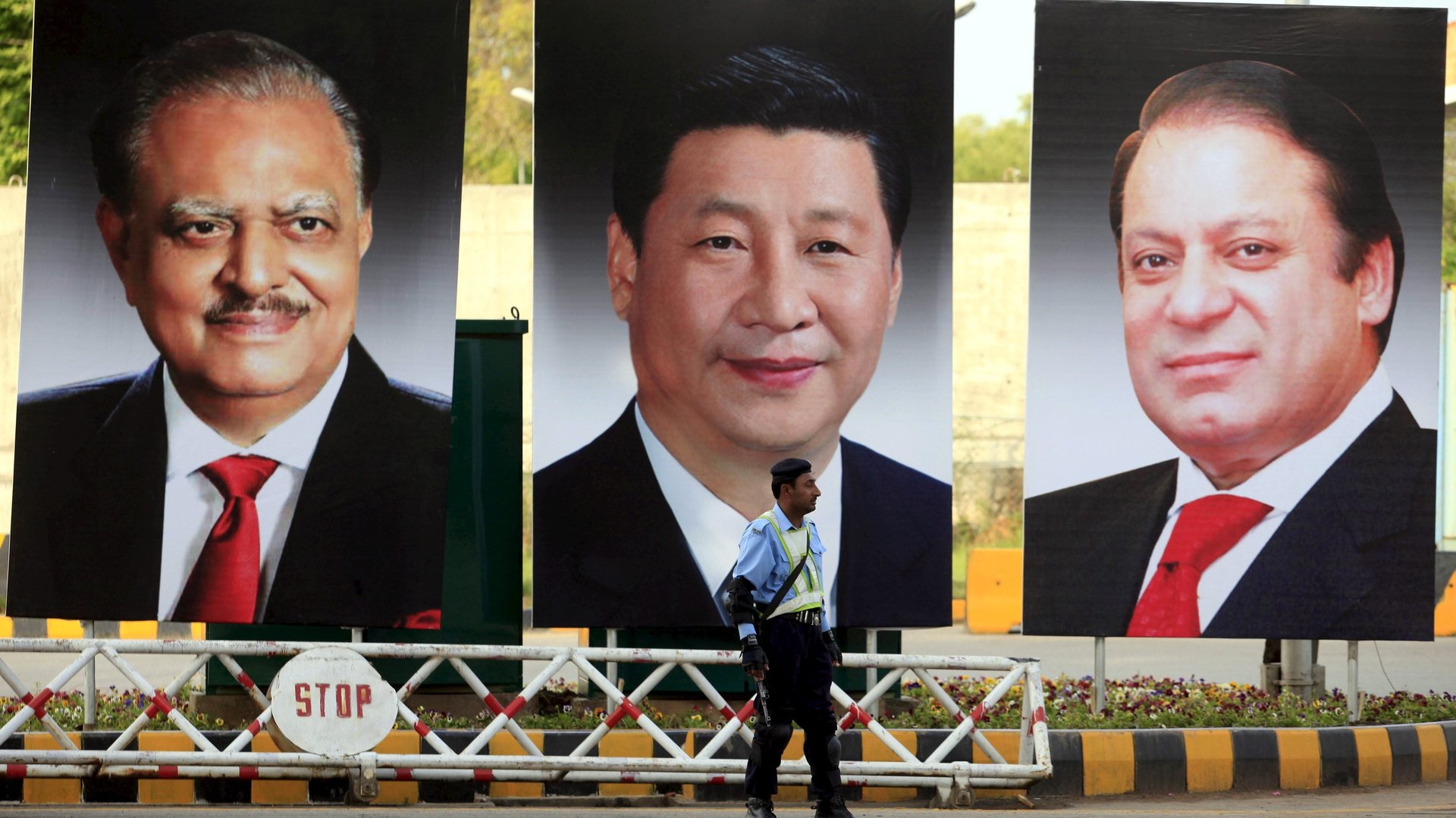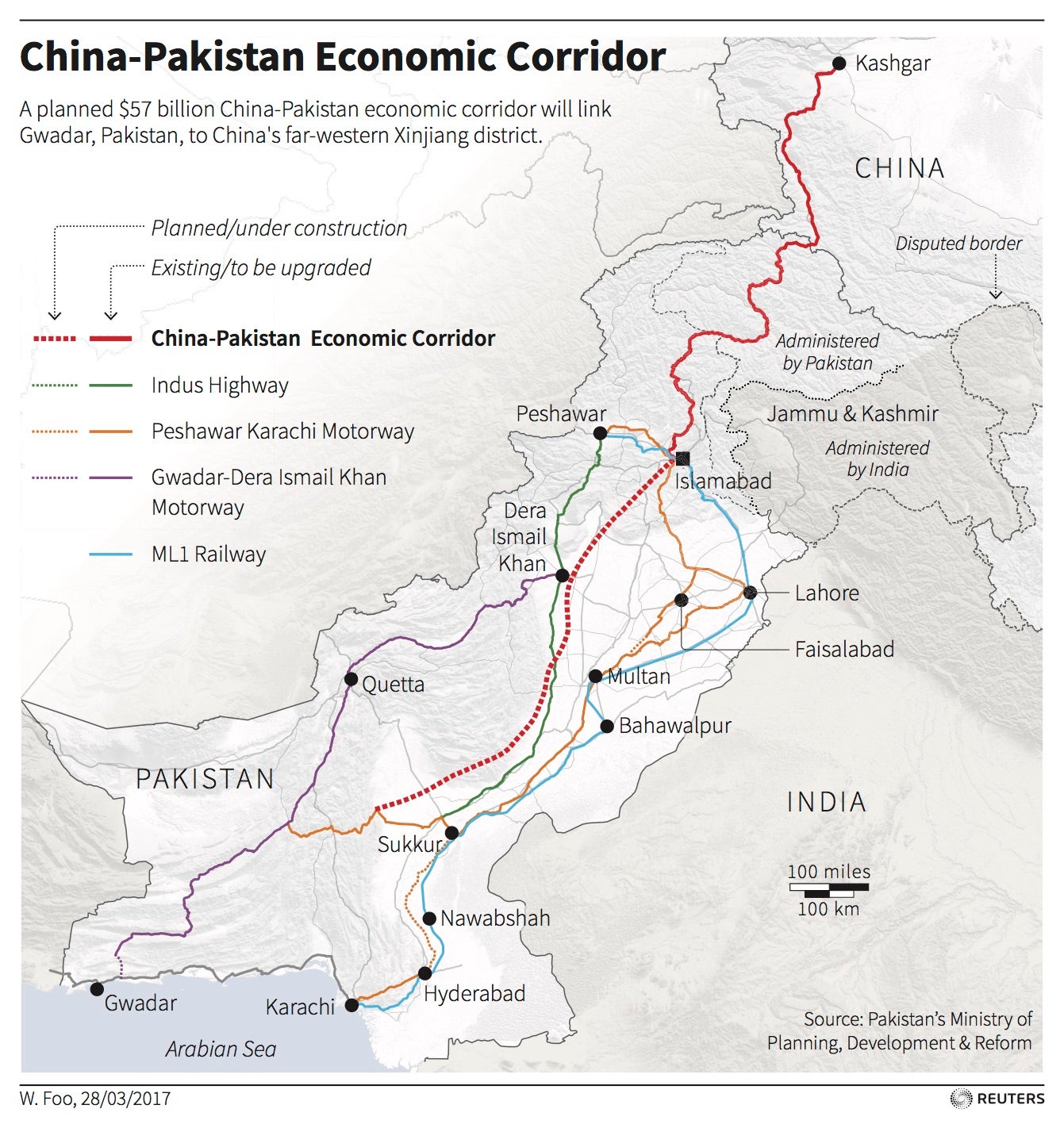China’s new Silk Road will include nightclubs, yacht quays, and 24-hour surveillance in Pakistan
Ever since China’s sweeping “One Belt, One Road” (OBOR) initiative was introduced in 2013, details on it have remained scarce. But this week, thanks to the Pakistani newspaper Dawn, we have one of the most comprehensive looks so far into a key project: a land corridor that runs through Pakistan, connecting China to the Arabian Sea.


Ever since China’s sweeping “One Belt, One Road” (OBOR) initiative was introduced in 2013, details on it have remained scarce. But this week, thanks to the Pakistani newspaper Dawn, we have one of the most comprehensive looks so far into a key project: a land corridor that runs through Pakistan, connecting China to the Arabian Sea.
The Belt and Road scheme aims to connect Asia, Europe, Africa, and the Middle East via infrastructure development that includes roads, ports, and rail lines. Chinese companies stand to benefit by building much of it, and by having a better means of transporting goods to international markets.

But the impact of OBOR on participating countries could run deeper than that, if the China-Pakistan Economic Corridor (CPEC) is anything to go by. According to a 231-page document obtained by Dawn, CPEC will lead to much more than transport links: It will shape Pakistan’s economy and society on multiple fronts, ranging from agriculture to entertainment to national security.
A closer look at CPEC, made possible by a $54 billion development package from Beijing, offers insights into what a new international trade order led by China might look like.
According to Dawn, CPEC will entail:
- Thousands of acres of agricultural land leased out to Chinese companies, which will set up ”demonstration projects” covering everything from irrigation technology to seed varieties.
- A surveillance system spanning cities across the country, with 24-hour video recordings on roads and in marketplaces. Data collected will be sent to a command center, but the plan doesn’t say who will be in charge of that center.
- A national fiber-optic backbone for internet traffic as well as terrestrial distribution of broadcast television. Chinese media will cooperate with Pakistani broadcasters in the “dissemination of Chinese culture” in the country.
- Industrial parks or special economic zones hosting Chinese firms operating in textiles and garments, cement and building materials, and fertilizer and agricultural technologies.
- A coastal tourism industry in the south that includes yacht quays, cruise ports, nightlife, and water sports, though “more work needs to be done” to realize this.
- Free and low-interest loans issued to Pakistan, to be disbursed as the projects get under way.
Quartz was not able to immediately verify the details as reported by Dawn, which says the plan is unprecedented in Pakistan’s history in terms of how far it opens up the domestic economy to foreign companies.
Pakistani prime minister Nawaz Sharif was in Beijing this week for an OBOR summit, and was among the 30 heads of state who signed a joint statement endorsing the initiative. In 1950 Pakistan was one of the first countries to recognize the newly founded China with a communist regime. The countries have historically considered their relationship as that of “iron brothers.” Each sees the other as a way to achieve a better balance against India, which often sides with the US.
India has boycotted the OBOR initiative, arguing CPEC runs through contested territory, including Pakistan-controlled Gilgit-Baltistan. There, too, China has plans, among them processing sites for granite and marble.